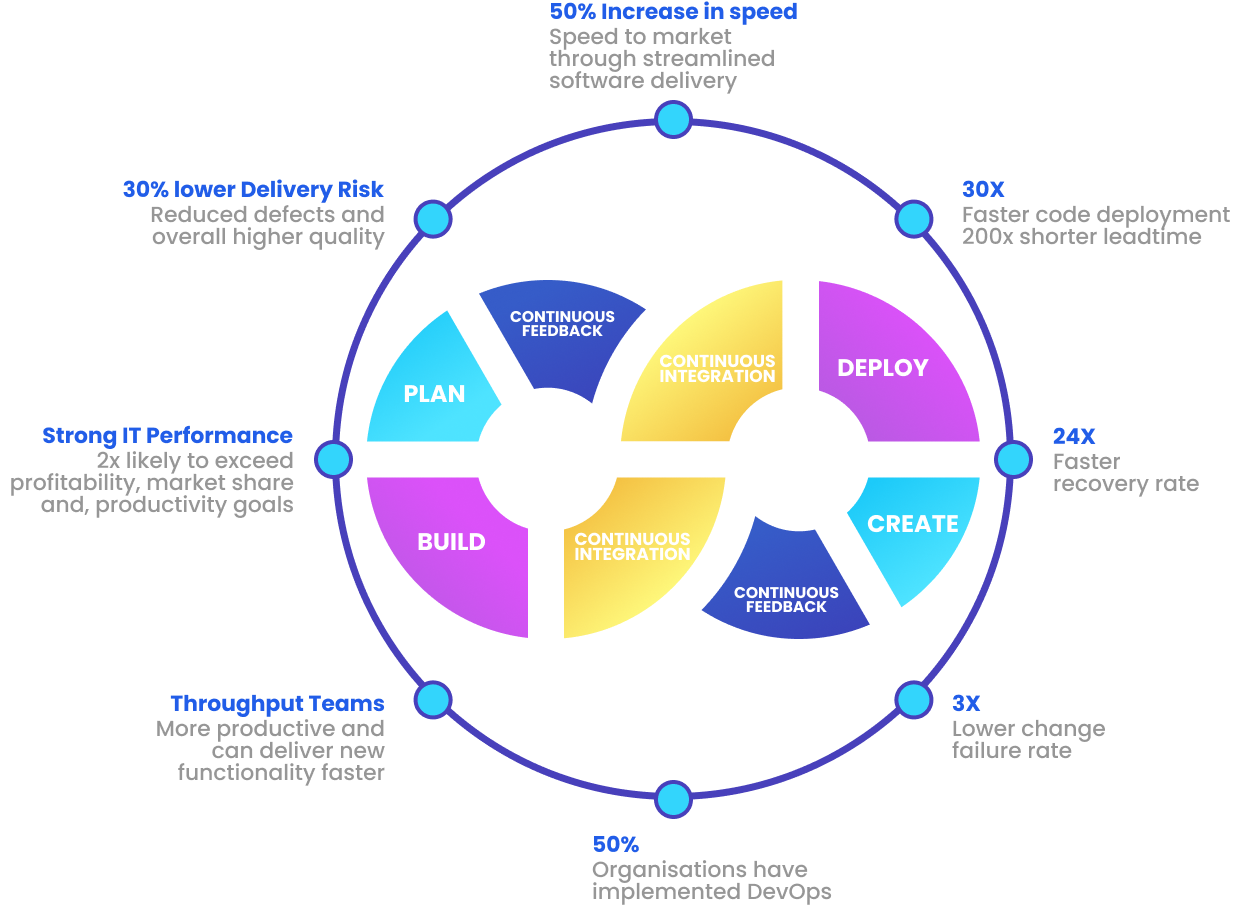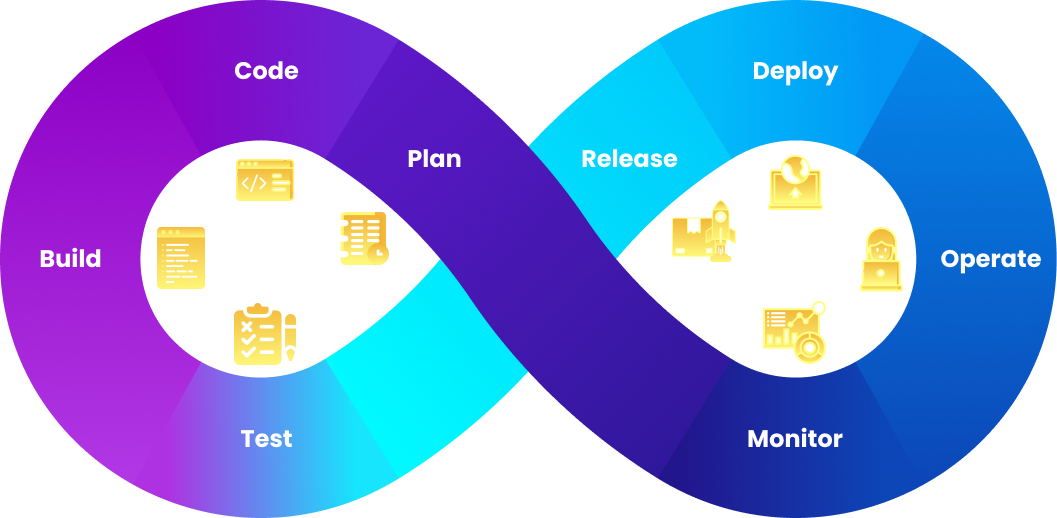
DevOps is an increasingly common approach to agile software development that developers and operations teams use to build, test, deploy and monitor applications with speed, quality and control.DevOps is relevant to any kind of software project regardless of architecture, platform or purpose.
Common use cases include: cloud-native and mobile applications, application integration, and modernization and multi-cloud management.
Successful DevOps implementations generally rely on an integrated set of solutions or a "toolchain" to remove manual steps, reduce errors, increase team agility, and to scale beyond small, isolated teams.
DevOps implementation has increased the rate of software delivery and the revenue for business stakeholders.
- Following listed reasons are the most considerable ones that led to the creation of DevOps.
- Before DevOps, operation and development teams were working in an isolated environment.
- Testing and Deployment activities mostly were performed in an isolated manner after design-build step, and they took more time than actual project completion time.
- Development and Ops conflicting priorities -> Dev wants change and Ops want Stability
- Team members usually spend a large amount of time in deploying, testing, designing, and building the projects
- Human production errors were deployed during manual code conduction.
- Operations and coding teams generally had different timelines and did not have proper synchronization that results in further delay.
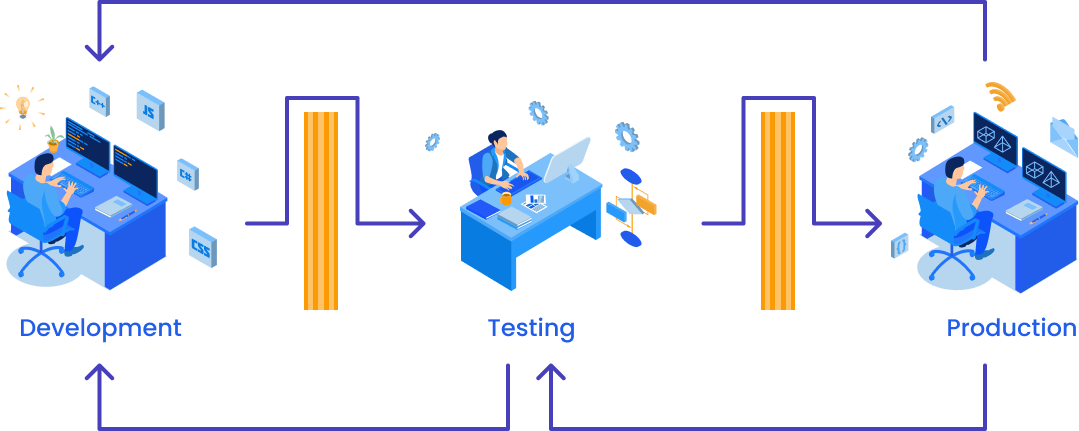
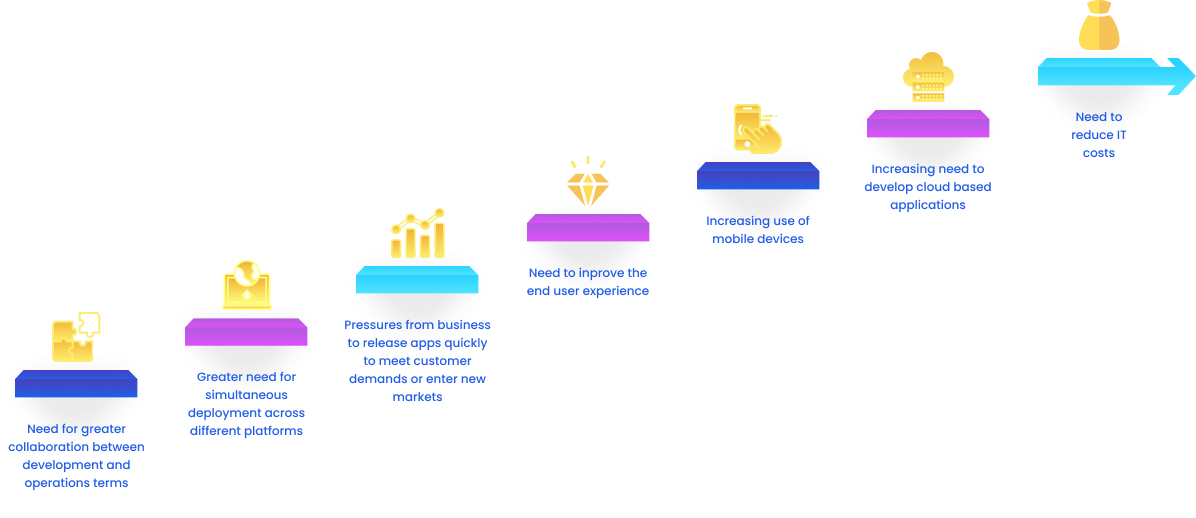
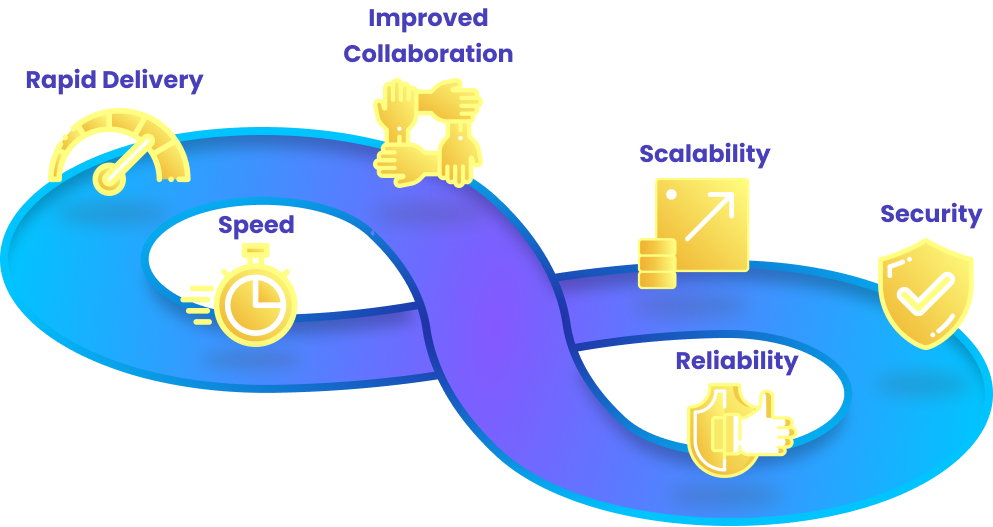
DevOps Strategy and Implementation
Speed: Through DevOps model, it is ensure a faster innovation and speedy execution.
Rapid Delivery: DevOps implementation involves very frequent delivery cycles (which could be small updates) and a minimum recovery time (in case of any failure) through Continuous Integration practice
Reliability: Through DevOps continuous integration and delivery practices, we ensure functional, safe and quality output, resulting in a positive end-user experience
Scale: Efficient management of all stages of the software product lifecycle (development, testing and production).
Improved Collaboration: DevOps methodology is built on a cultural philosophy that focuses on development and operations working in a collaborative environment
Security: DevOps model achieves this factor through configuration management techniques and automated compliance policies.
DevOps Implementation Roadmap
At IntelliCredence, we're guided in everything we do by our six core values
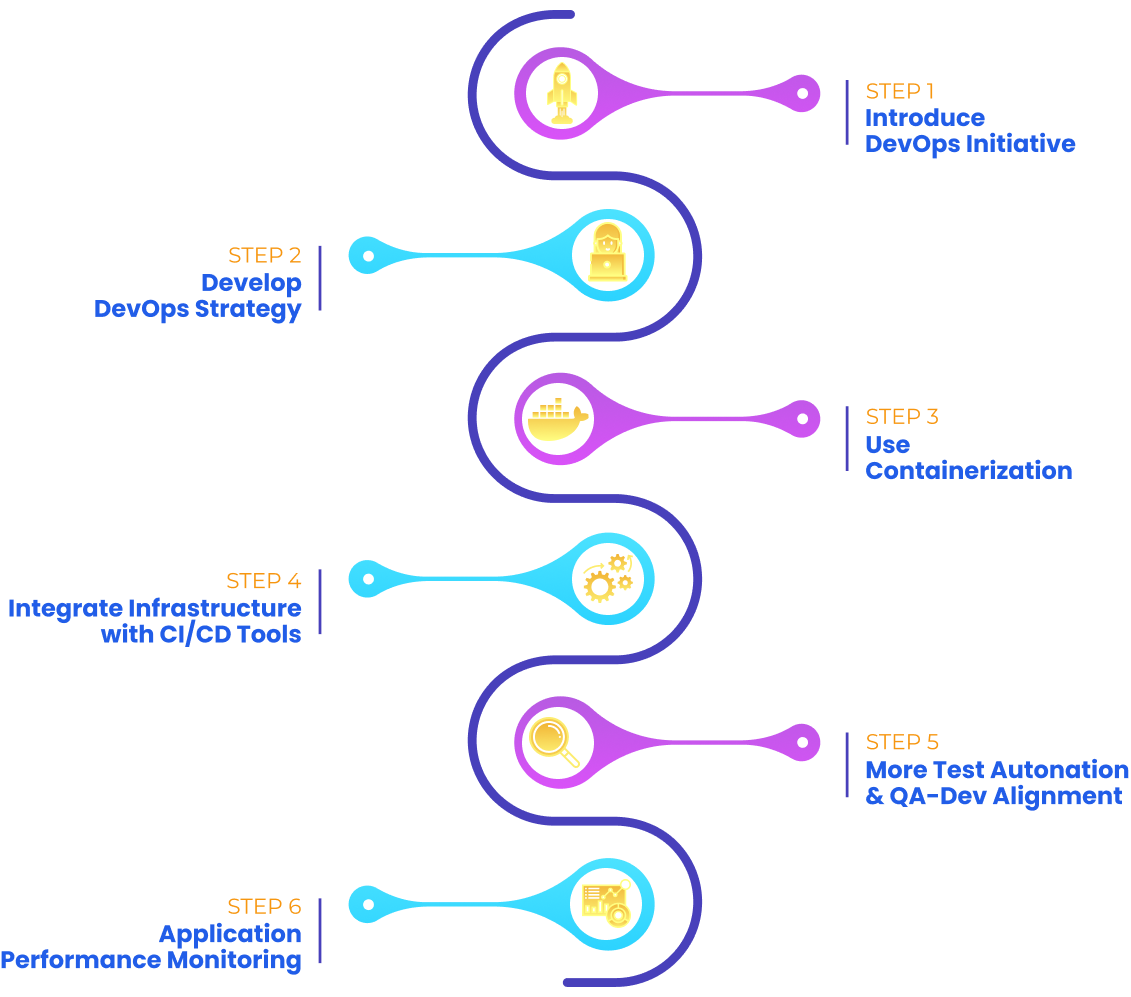
Day in life of DevOps team
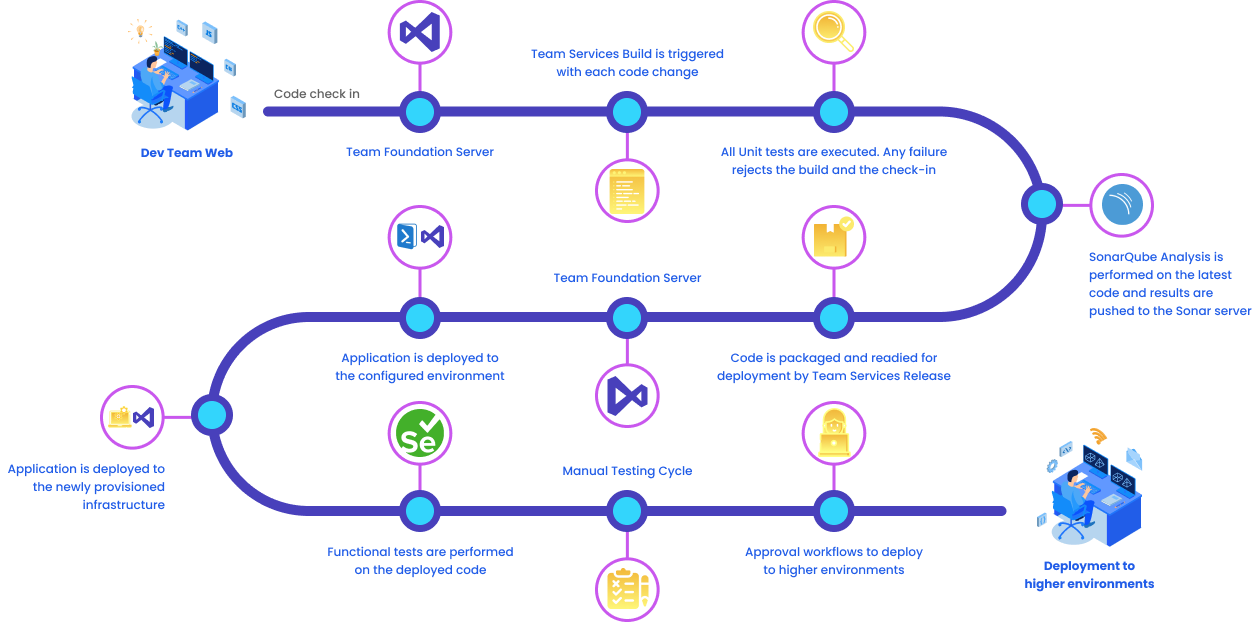
DevOps Benefits
